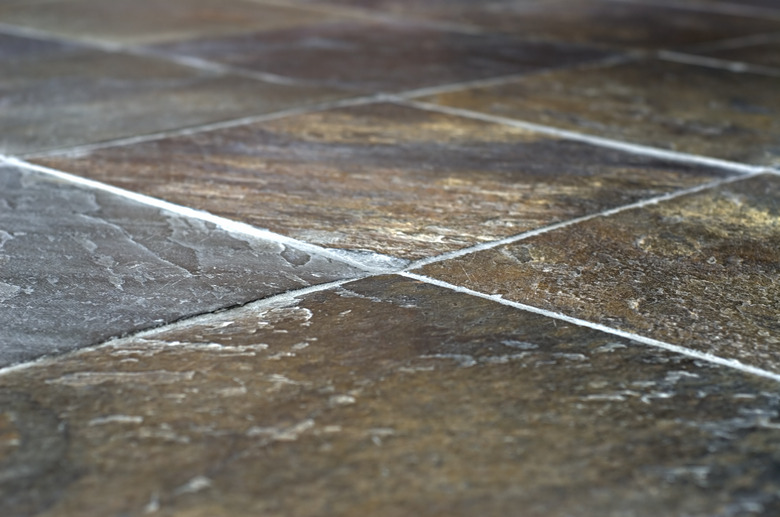Homemade Floor Cleaner For Stone Floors
In this day and age, it seems like there's a specific commercially-produced cleaner for every surface possible, from wood and tile to glass and even electronics. However, a commercial cleanser for floors isn't strictly necessary, particularly in families with children or pets, where the potentially toxic ingredients could cause a problem. There are a number of ways to create nontoxic all-natural stone floor cleaner using simple, affordable household ingredients.
Things to Know About Stone Floor Cleaner
Things to Know About Stone Floor Cleaner
One major rule of thumb for a stone floor cleaner is to avoid anything acidic. The ideal cleanser is a pH neutral product, meaning that it's around a 7 on the alkaline/acidity scale. Anything more acidic can damage the surface of your natural stone floor. Anything more alkaline might not get the floor clean.
The same warning goes for abrasives. It may seem like a heavily abrasive cleanser is just the thing to scour and clean the surface of natural stone, but abrasive cleaners can easily scratch the stone floor, especially stone that has been glazed or polished to a fine shine. A mild abrasive is fine, but anything particularly coarse should be well avoided.
All sand, coarse dirt and other particles should be removed daily with a soft-bristle broom to prevent scratches from appearing on the surface of the stone. Lightly vacuuming the stone regularly is a good idea, too, to prevent the debris particles from collecting in corners and the grouted areas in between tiles.
Homemade Floor Cleaner for Mopping
Homemade Floor Cleaner for Mopping
Using a homemade floor cleaner for mopping your stone floors has several advantages. For one thing, it's a lot cheaper than buying a premade commercial cleanser at a hardware store. For another thing, you can control exactly what ingredients go into what your making, and the degree of abrasiveness or acid that you want to add to each batch.
One of the best combinations of elements for a homemade floor cleaner is a blend of castile soap, baking soda, and water. Not only will this combination remove dirt and staining even on grout, but it will buff the floors to a high sheen without scratching or damaging them in any way. Try a combination of 90 percent baking soda, 8 percent water, and 2 percent Castile soap to create an incredibly effective cleaning paste.
Other Stone Floor Cleaners
Other Stone Floor Cleaners
Although white vinegar is often touted as a catchall cleaning solvent for household use, you will want to avoid using white vinegar on natural stone floors because of its high acidity. The same is true of lemon juice and ammonia. Avoid these at all costs or face an expensive replacement process! Instead, try several drops of liquid dish detergent mixed with a gallon of warm water.
This is especially good for unstained stone floors that just need a simple cleaning. Dampen a mop with the solution and slide it slowly across the floor. Castile soap shavings mixed into hot water is also a good combination for a thorough, gentle cleaning. Take care not to saturate the stone because certain natural stone is highly porous and can trap water leading to mold, mildew and cracking of the tile.
Grout is highly porous, as well, so be careful to use a moderate amount of cleaning solution so it doesn't soak into the grout and get trapped. Be sure to dry your tile thoroughly after cleaning it. If the room you've just cleaned lacks strong ventilation, try bringing a high-powered fan in and opening the windows to create the air circulation necessary to ensure that all tiles and grout is completely dry.
